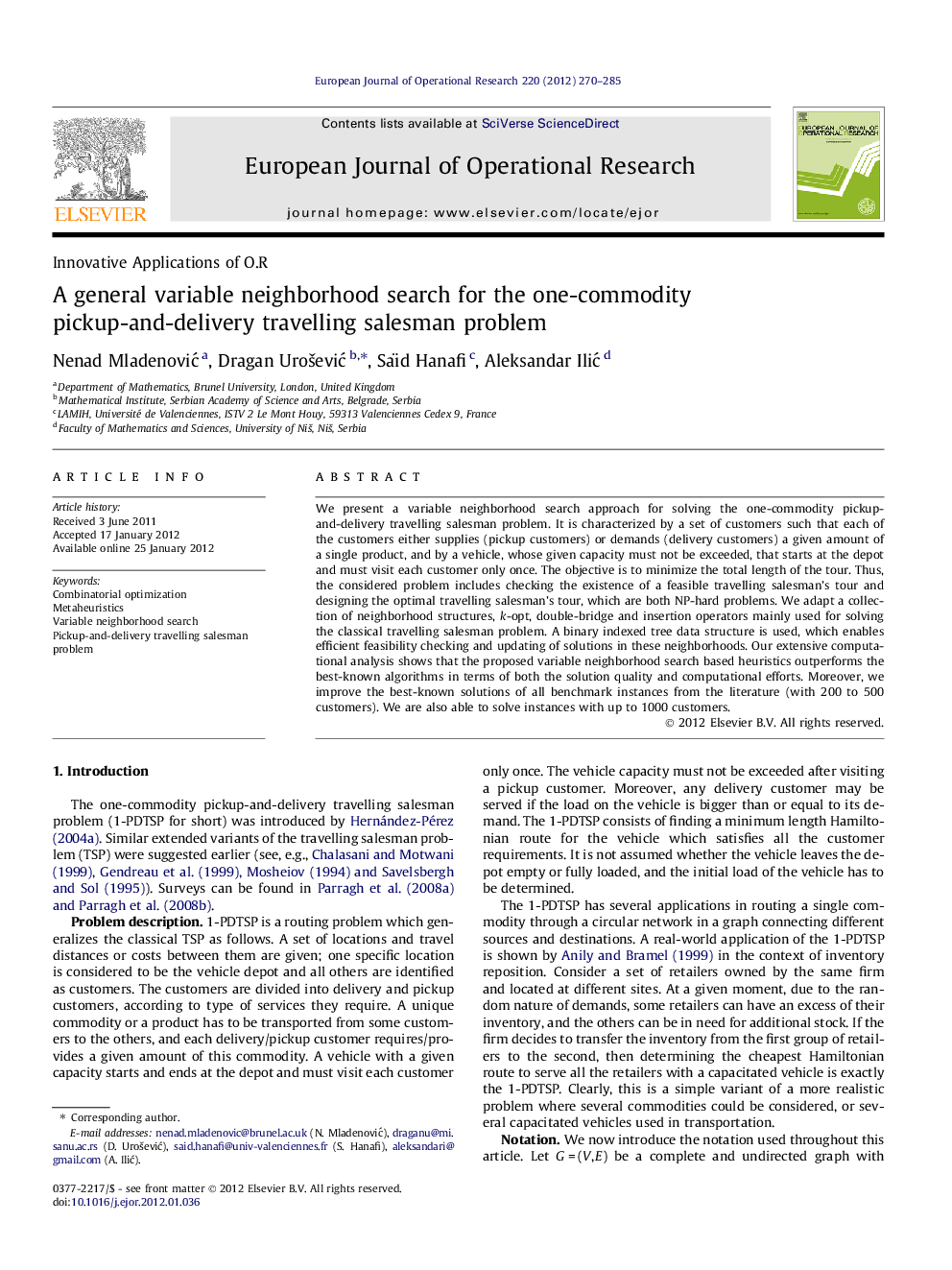| Article ID | Journal | Published Year | Pages | File Type |
|---|---|---|---|---|
| 480402 | European Journal of Operational Research | 2012 | 16 Pages |
We present a variable neighborhood search approach for solving the one-commodity pickup-and-delivery travelling salesman problem. It is characterized by a set of customers such that each of the customers either supplies (pickup customers) or demands (delivery customers) a given amount of a single product, and by a vehicle, whose given capacity must not be exceeded, that starts at the depot and must visit each customer only once. The objective is to minimize the total length of the tour. Thus, the considered problem includes checking the existence of a feasible travelling salesman’s tour and designing the optimal travelling salesman’s tour, which are both NP-hard problems. We adapt a collection of neighborhood structures, k-opt, double-bridge and insertion operators mainly used for solving the classical travelling salesman problem. A binary indexed tree data structure is used, which enables efficient feasibility checking and updating of solutions in these neighborhoods. Our extensive computational analysis shows that the proposed variable neighborhood search based heuristics outperforms the best-known algorithms in terms of both the solution quality and computational efforts. Moreover, we improve the best-known solutions of all benchmark instances from the literature (with 200 to 500 customers). We are also able to solve instances with up to 1000 customers.
► In this paper we study the pickup and delivery traveling salesman problem. ► There are infeasible (not correct) tours in the space of all possible tours. ► We propose using binary indexed trees for efficiently checking feasibility of tours. ► By using this structure we accelerated different local searches for TSP. ► Finally, we provide detailed results of testing on benchmark instances.
